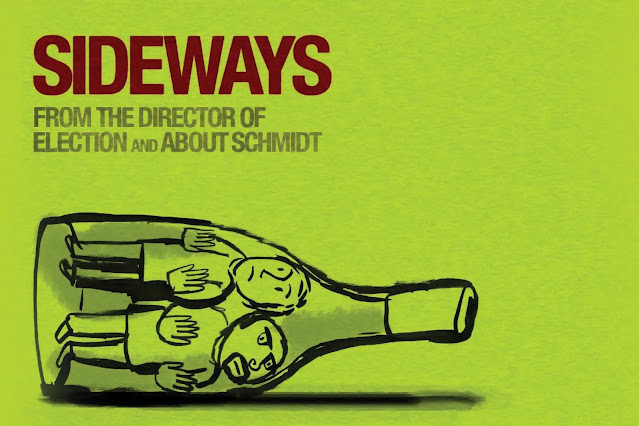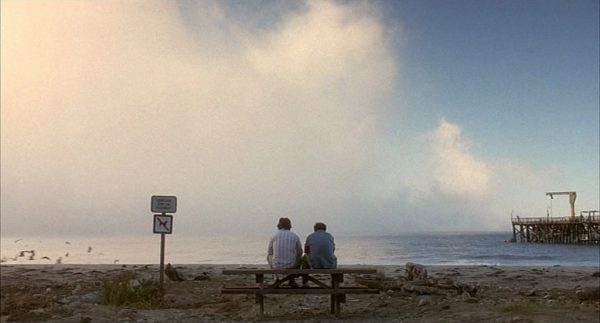Movies can change the world, even if it is just for a little while. They have the power to promote interest in things people never really considered before, simply by planting the seed of thought in someone’s mind and inspiring them to do something new. Many of our current crop of astronauts got interested in the space program after watching Star Trek. Many more became doctors and engineers, too, based on that same cheesy sci-fi show from the 1960’s. Even further back, all the way to the 1940’s, Disney’s animated film Bambi directly inspired many families to not go hunting that year, no doubt due to insistence from impressionable children. Clark Gable not wearing an undershirt on screen during It Happened One Night led to a steep decrease in the sales of undershirts. More recently, 2004’s Sideways introduced audiences to Wine Tasting, an activity that consists primarily of sampling many varieties of wine while also learning about the cultivating of the various types of grapes and how they become wine. Shortly after this film released the whole concept of wine tasting became more prominent in the cultural zeitgeist and tourism to the Sta. Rita Hills AVA region increased significantly. At the same time, sales of Pinot Noir, featured prominantly in the film, increased by 16% in the Western United States while Merlot sales dropped. All of this because a character in a movie preferred one over the other. Behold, the power of the movies.
Sideways was an enormously popular movie for its time. It didn’t make blockbuster money but for a relatively low budget drama about a man going through an emotional crisis over the course of a week it did very well. Alexander Payne was known more, at this time, for his biting satires with such films as Citizen Ruth and Election taking stabs at hypocrisy and self-righteousness. Then he changed gears and made the emotionally draining About Schmidt, a look at widowhood through the eyes of Jack Nicholson, cast brilliantly against type. Two years later he did it again, this time with a middle aged divorcée played by Paul Giamatti.
Miles Raymond (Paul Giamatti) seems to have every reason to be depressed. He is an unpublished author and divorced teacher living in San Diego. His friend and former college roommate, Jack Cole (Thomas Haden Church), is engaged to be married and the two make plans to spend the week leading up the the wedding touring southern California’s wine country, enjoying the last few days of freedom golfing and frequenting the local vineyards. Miles is a wine enthusiast, wanting to spend the week relaxing and enjoying the alcohol whereas Jack has greater ambitions. He wants to sew his wild oats before the big day, looking for women he can quickly bed without worrying about any long term commitments.
It doesn’t take long into their little vacation before Jack notices that a woman Miles is casually acquainted with, Maya (Virginia Madsen), is interested in Miles; Miles thinks she is just being professionally friendly. Jack lies to her saying Miles’ novel is being published when it is actually just being considered for publication and Maya expresses interest in reading it. The following day Jack meets Stephanie (Sandra Oh), a wine pourer who knows Maya, and makes arrangements for the four of them to go on a double date, not telling Stephanie he is engaged. Miles and Maya eventually begin to bond over their mutual love of good wine and he opens up to her about his book, even giving her a copy to read. Things turn south, though, when he accidentally lets slip about Jack’s upcoming wedding.
Author Rex Pickett wrote the novel on which Sideways is based. His book by the same name is the start of a series of novels following Miles and his struggles with relationships, his friendship with Jack, and his writing. When the film version of Sideways was produced actress Sandra Oh, married to the director at the time, made so many changes to the script that it irritated Pickett and he deliberately left her character out of the future novels so that should a sequel be made she would not be a part of it. Alexander Payne has expressed no interest in making that sequel but had he done so he could have easily written her into it just to spite the author. The story, as it’s told on the screen, doesn’t need a sequel, though. In those sequel novels Miles is not seeing Maya anymore which makes the ending of the film just feel sad and depressing. I’d rather think that they got together and made it work, like the film hints at. The final scene is him knocking on her door after receiving a phone call from her excitedly talking about his unpublished novel. It’s an upbeat moment after a sea of downers and I like where it leaves us. Those novels would probably depress me.
Paul Giamatti is one of those actors who is awkward and comes across as the type of person who should be relegated to being just a character actor, yet he has managed to sustain a career in leading roles, too, primarily in lower budget indy films. And he is great in these films. When he appears in bigger films he is often miscast, like when he is playing The Rhino in The Amazing Spider-Man 2. He’s just awful in that, affecting a bad Russian accent. But when he shows up in these lower budget indy dramas like The Holdovers and American Splendor he just nails it, delivering performances that are so dead on that you forget you are watching a performance. It was a snub in 2004 when he didn’t even get a nomination for his performance in Sideways. He would rectify that nearly a decade later in The Holdovers,another Alexander Payne film.
Thomas Haden Church, on the other hand, did get nominated for this. His performance is not as nuanced as Paul’s is. He’s also playing an extremely unlikable character, a man who is getting ready to be married yet his only thought during their week of leisure is to screw around as much as possible before the big day. I’ve mentioned in other reviews, A Touch of Class especially, that I hate plot points where a main character is unfaithful and doesn’t get their comeuppance. That is only half true in this film. Ideally Jake would get called out by his fiancé for sleeping around but that doesn’t happen. However, he gets found out by Stephanie who learns of his upcoming wedding from Maya. Stephanie assaults Jack, breaking his nose and beating him pretty badly. This doesn’t slow him down in the least and he is soon hitting on a married waitress and spending the afternoon in her bed. What happens afterwards is one of the funniest and most disturbing moments of the entire picture.
Sandra Oh, despite being the director’s wife at the time, isn’t given much to do here. Her role is relegated to a couple of scenes around a dining table and a brief, somewhat graphic sex scene. Her best moment comes when she assaults Jack, breaking his nose. She is as disposable here as her character is to Jack. On the other hand Virginia Madsen is really given an opportunity to shine. Her first real scene, during the double date, shows the complexity of her character as she is trying to draw Miles into a conversation that he seems too depressed and intoxicated to get into. It seems like these two are just not going to click at all. But you get the sense that she really cares for him and doesn’t give up easily. Eventually she is able to get him to open up to her and they find a mutual interest that sparks a conversation that will help him stop dwelling on his ex-wife and how she is getting remarried. Up until then he had been obsessed with the idea that he and his ex would get back together and make it work and, just before the double date, he finds out that she is getting married again. This revelation has colored his entire date with Maya, something she finally manages to break through.
Sideways is a complex look at human weakness and frailty with the occasional laugh thrown in. The humor comes mostly in the form of shock laughter like when Miles has to break into the house of the waitress to get Jack’s wallet after he fled from an angry jealous husband. That moment is sickening and disturbing but also funny as heck. But it’s the little things that made me laugh the most. When Miles opens up to Maya enough to offer her a copy of his unpublished book be hands her a heavy box full of the pages. It’s the size of a full ream of paper and obviously full. She seems surprised at the size, only to get a further shock when he hands her a second box, just as full. This is a big book, requiring some serious commitment. It’s sweet, though, when she calls him up at the end of the picture to let him know she has finished it. As mad as she was when she found out about Jack’s wedding, she still took the time to read the book to the end.
Sideways is a crude film at times but it never really loses the sweetness as Miles comes to terms with his life. Paul sells that emotion and the film is wholly carried on this performance. He is in every scene and there is not one false note to what he is doing. He should have been better recognized for it. He did get nominations from the Boston Society of Film Critics and the Broadcast Film Critics Association but the Academy Awards ignored him when it came down to their nominations. It’s a real crime because he is the heart and soul of this picture. The whole tone of the film is dependent on him. This is such an emotional picture and he’s a big part of that. It’s a film about mid-life crisis’s and life changes. It’s also about finding love. Alexander Payne has done a good job weaving all these human complexities into a picture that people reacted strongly to when it released in 2004 and it earned its spot at the top of the list of films that released that year.
Academy Award Nominations:
Best Picture: Michael London
Best Director: Alexander Payne
Best Supporting Actor: Thomas Haden Church
Best Supporting Actress: Virginia Madsen
Best Adapted Screenplay: Alexander Payne and Jim Taylor (won)
____________________________________________________
Release Date: October 22, 2004
Running Time: 127 Minutes
Rated R
Starring: Paul Giamatti, Thomas Haden Church, Virginia Madsen and Sandra Oh
Directed By: Alexander Payne









Comments
Post a Comment